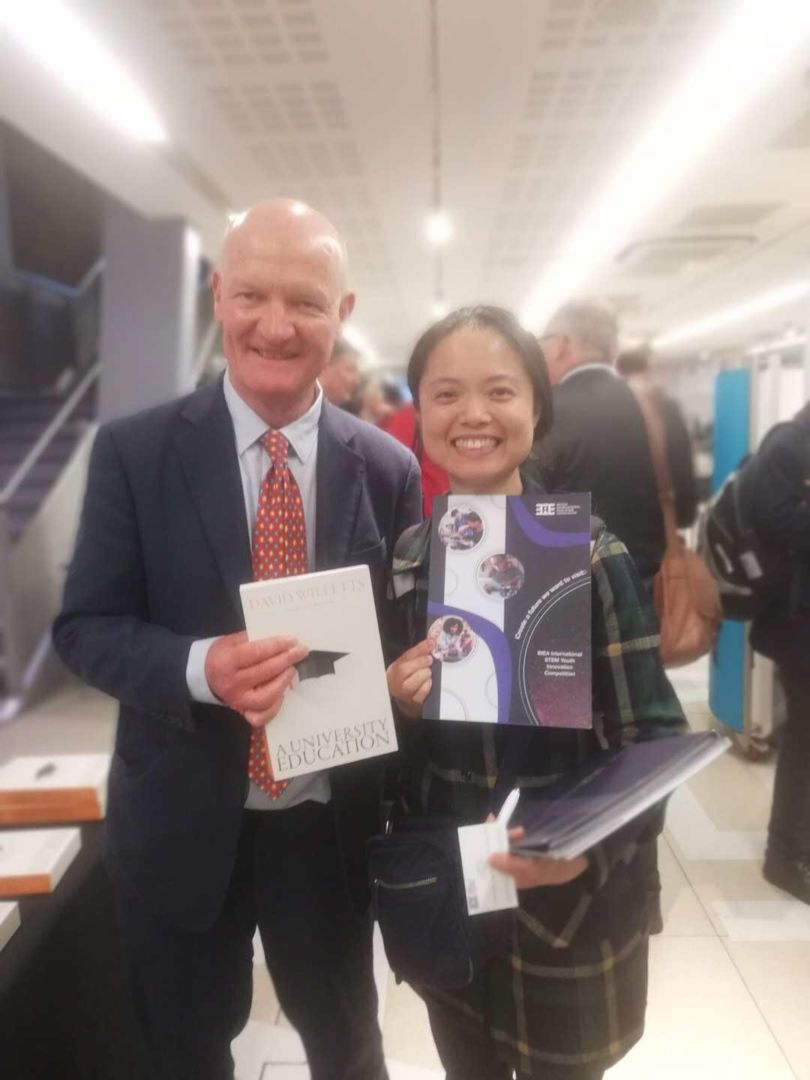A University Education: Engineering in UK Universities
Lord David was minister for universities and science in the coalition government from 2010 to 2014, when the cap on tuition fees was raised to £9,000 per year in England and Wales. Today he gave a talk at the UCL department of engineering to an audience of higher education professionals including from the UK and abroad on what a modern university education could be, in particular, university education for future engineers. BIEA was invited as a guest among professors from Bath University, Kings College, UCL, etc.
Reflecting on his experience in British politics, Lord Willetts explained the policies and decision-making processes within British government on education.
He also talked about accessibility to university: are there too many graduates in the world? Should everyone go to university? Will there be more 4 year degrees in the future or more students will choose a 2-year degree? There is no clear right or wrong answer in them, the audience was happy to participate in the discussion.
Lord Willette is aptly nicknamed ‘two brains’ for being an intellectual, he strongly believes in evidence-based research and raised questions about recent The longitudinal education outcomes (LEO) Data. This is a UK government publication on employment and earnings outcomes of higher education graduates broken down by subject studied and graduate characteristics. In his opinion, during a recession, a university degree helps with graduate employment, although earnings could be lower. The hardest hit group would be the young people without a degree, as employers in difficult times would choose to pay less for a better-educated workforce.
During the session, international comparisons were made between UK and Germany engineering graduates. Also how collaborative work between universities from the UK and other countries could encourage creative partnerships and benefit the students.
One of the key issues discussed was how British students had to specialize early in their education compared to other countries. At 16 or 17, students in England would need to decide which disciplines they would follow at university, they would then choose three or four subjects at A-levels. Lord Willetts believes that this early specialization gives less breadth of knowledge to students and ultimately limit their choices in future careers.
Also the gender balances in STEM education was raised by several guests, although more girls are now taking Maths at A-levels than ever before, the number pursuing a science degree is still low.
Reflecting on BIEA’s International STEM Competition, we have had a record number of female students joining in the competition and this demonstrates the appeal of the theme to both girls and boys.
We are glad to share updates on the international reach of our competition and we hope Lord Willetts will share his wisdom and wit at the international final on 4th July.


